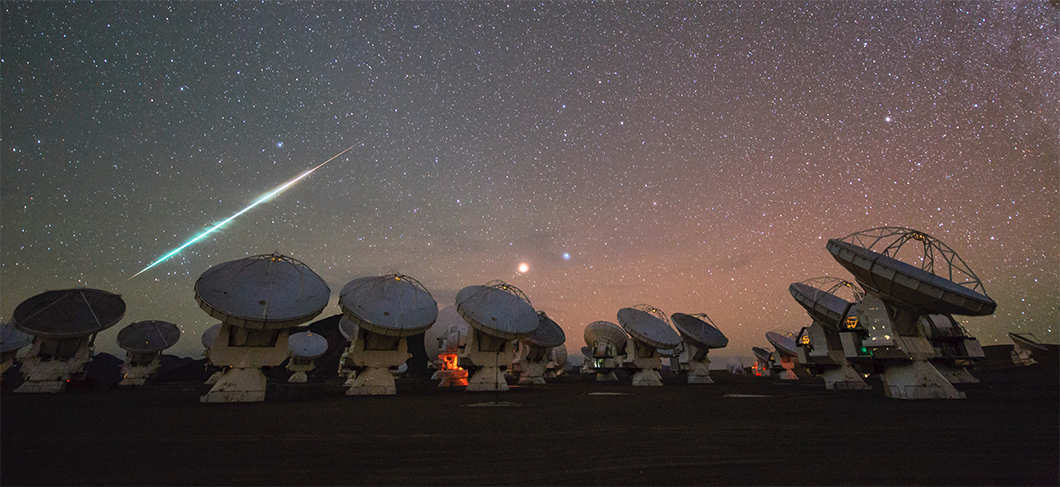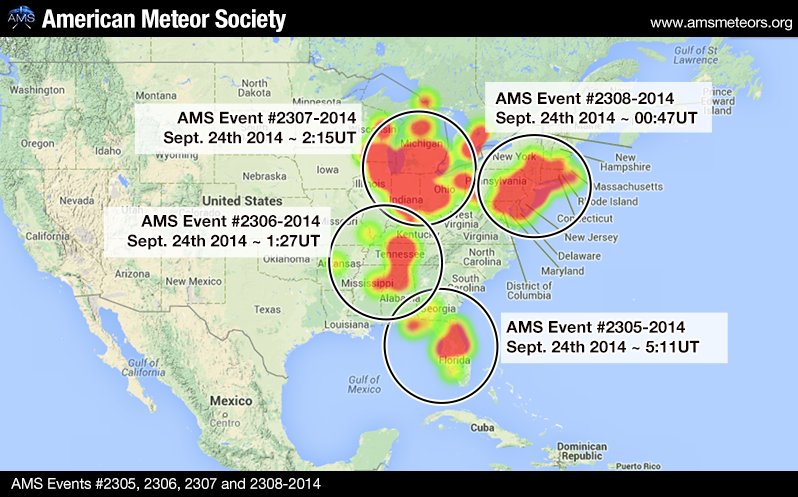
An Eventful Day
Over the last 24 hours, the skies over the eastern United States have been set ablaze by four fireball asteroids. Three of the fireballs actually happened within 1.5 hours of each other, which is unprecedented. In fact, the American Meteor Society has chimed in and stated, “It is rare that multiple significant fireball events occur and are reported to the AMS in the same evening. After analysis of the time, proximity of witnesses and pointing data gathered, it was determined that each event was unique. It is likely that several of these fireball events were captured on camera by the NASA fireball network.”
- Event #2305-2014 – A fireball was seen at approximately 1:11 local time (EDT) in FL and GA.
- Event #2306-2014 – Over 77 witnesses from MI, IL, OH, IN, ON WI, PA, NY, and KY reported a bright fireball over Michigan around 21:55 local time.
- Event #2307-2014 – 29 witnesses from TN, AR, AL, MS, MO, and KY reported seeing a fireball over Tennessee at approximately 20:30 local time.
- Event #2308-2014 – 42 witnesses in CT, PA, NY, NJ, MA, and MD reported seeing a bright fireball in North Eastern Pennsylvania near 20:47 local time.

This cosmological light show appears to have come to an end. So far, no further sightings have been reported. The fireballs haven’t caused any damage and have peacefully disintegrated in our atmosphere like they are supposed to; they just left with a bang.
So What Exactly Is a Fireball?
If a bit of space debris that is a lot brighter than a standard meteor enters the atmosphere, it may be known as a fireball. Fireballs are still meteors — the term just refers to a special sub-class of them. To bridge the gap between a bright meteor and a dim fireball, NASA has designated a “fireball” as being a meteor with a visual magnitude in excess of -3.
For the most part, even meteors that are bright enough to be classified as fireballs aren’t large enough to make it through the Earth’s atmosphere intact, though smaller fireballs do sometimes reach the surface. A fireball meteor will generally start when the meteoroid is at least 1 meter in size.
The definition for a bolide is a bit sketchy. Usually the terms “fireball” and “bolide” are interchanged, implying that they have the same meaning; however, there are slight differences between them. The difference is the explosion.
As NASA states, “Fireballs that explode in the atmosphere are technically referred to as bolides, although the terms fireballs and bolides are often used interchangeably.” The term “bolide” comes from the Greek word “bolis,” which generally means “missile” but can also have the meaning of “flash.” Bolide can also refer to a meteor that we don’t know the composition of, though that’s usually in reference to ancient craters that happened thousands to millions of years ago.